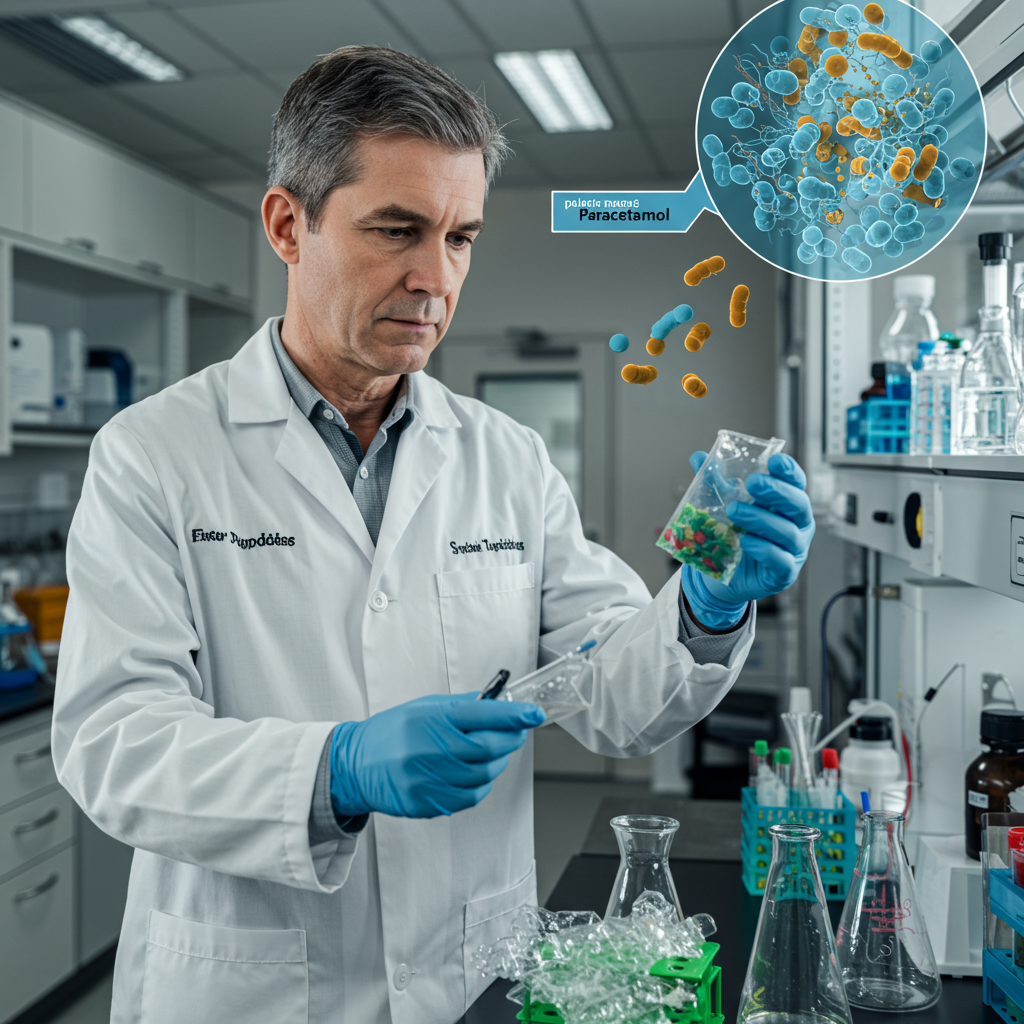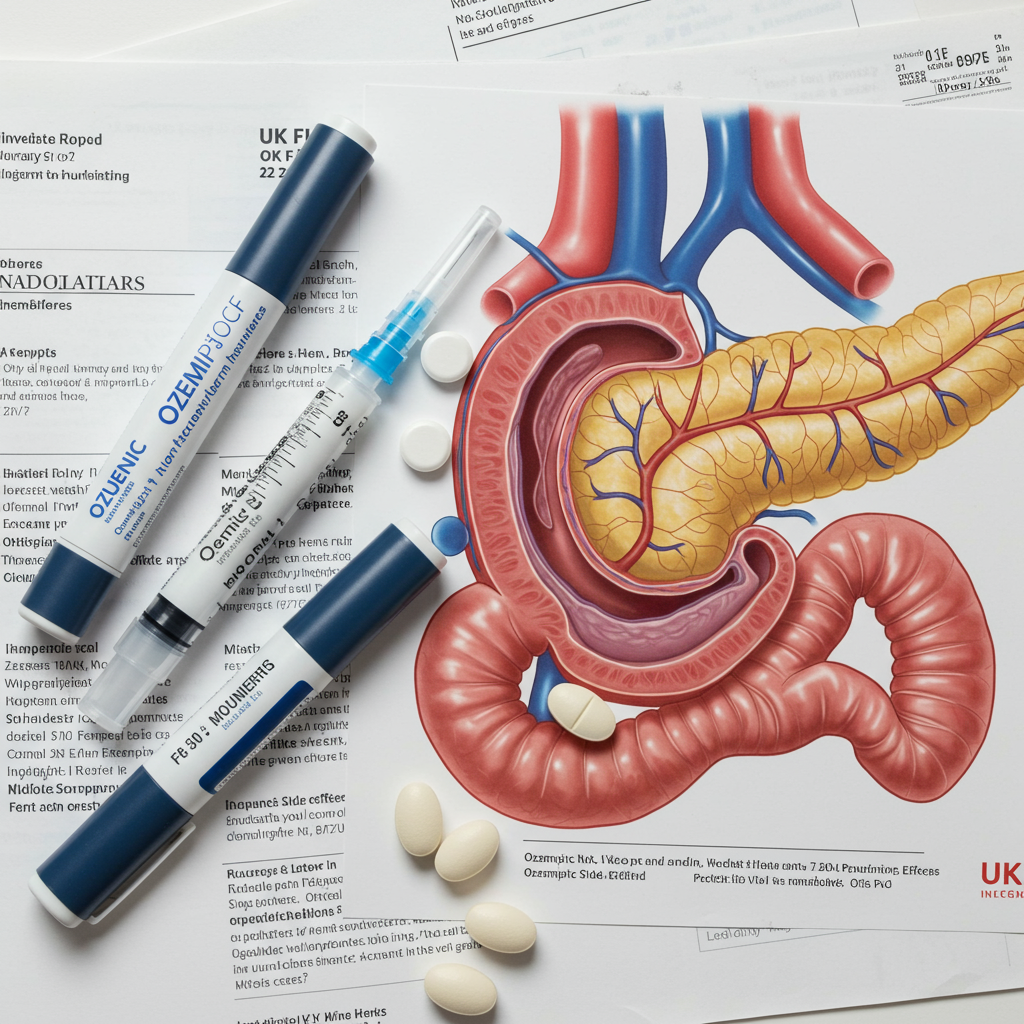Dealing with the ever-growing mountain of plastic waste is a significant global challenge. Meanwhile, the production of many essential medicines, like the common pain reliever paracetamol (also known as acetaminophen), still relies heavily on fossil fuels. Now, scientists have unveiled a promising solution that tackles both problems at once: using specially engineered bacteria to transform plastic waste directly into this widely used drug.
Researchers at the University of Edinburgh, led by engineering biologist Stephen Wallace, have successfully modified Escherichia coli (E. coli) bacteria to convert components derived from plastic bottles into paracetamol. This innovative approach offers a potential pathway for sustainable pharmaceutical production and a novel use for discarded plastic.
From Plastic Bottle to Pain Relief
The process begins with polyethylene terephthalate, or PET, the type of plastic commonly used for beverage bottles and packaging. While PET is recyclable, it’s often challenging to process without degrading its quality, leading millions of tons annually to end up in landfills or the environment.
Instead of traditional methods for recycling PET, the Edinburgh team developed a process that chemically breaks down the plastic into a usable starting material, specifically a compound related to terephthalic acid. This material then serves as the feedstock for the engineered bacteria.
Engineering Life for Chemical Synthesis
The core of this scientific breakthrough lies in synthetic biology – the design and construction of new biological parts, devices, and systems, or the re-design of existing, natural biological systems for useful purposes. The researchers genetically engineered E. coli bacteria to perform a chemical feat they don’t naturally possess: conducting a specific type of reaction known as a Lossen rearrangement inside the living cell.
This reaction is key because it can convert molecules derived from recycled PET into a crucial precursor molecule called para-aminobenzoic acid, or PABA. PABA is essential for bacterial growth, so the scientists first modified E. coli to be unable to produce PABA through their normal pathways. This created a clever test: if the bacteria could grow when fed the plastic-derived material, it proved they were successfully performing the Lossen rearrangement and converting the plastic molecules into PABA. Notably, this reaction, typically requiring harsh lab conditions, occurred within the mild, biocompatible environment of the E. coli cells, catalyzed by phosphate present in the growth medium.
The Final Conversion: Plastic to Paracetamol
Building on this success, the scientists took the process a step further. They introduced two additional genes into the engineered E. coli – one sourced from mushrooms and another from soil bacteria. These genes provided the bacteria with the necessary enzymatic machinery to convert the PABA produced from the plastic-derived material directly into paracetamol.
The results were remarkably efficient. The tweaked E. coli successfully converted up to 92 percent of the plastic-based starting material into paracetamol within 48 hours. When starting directly from actual plastic waste samples, the yield reached an impressive 83 percent. This process operates at room temperature, generates minimal emissions, and avoids the high temperatures and solvents often required in conventional paracetamol synthesis, which starts from petroleum-derived chemicals like phenol.
A Sustainable Future for Pharmaceuticals?
Published in the journal Nature Chemistry, this research highlights a significant merger of chemistry and biology, opening up new possibilities for creating valuable chemicals and pharmaceuticals from waste. Traditional paracetamol production relies on fossil fuels, contributing to carbon emissions and supply chain vulnerabilities tied to oil prices. This bio-based method offers a potentially greener, more sustainable alternative, aligning with growing pressure on industries, including pharmaceuticals, to reduce their environmental footprint.
This study is seen as an exciting starting point for plastic waste upcycling. While turning plastic into fuel for organisms is interesting in itself, converting it into a high-value product like paracetamol demonstrates the economic and societal potential of such bio-manufacturing.
Challenges and the Road Ahead
Despite its promise, the process is not yet ready for industrial-scale production. One major hurdle is scaling up the initial step of breaking down the plastic waste into a consistent feedstock for the bacteria. Additionally, scaling the microbial fermentation process to handle large volumes economically and navigating regulatory frameworks for drug production from novel sources present further challenges. The variability in the composition and quality of post-consumer plastic waste is also a factor to consider.
However, this fundamental study is a crucial stepping stone. The Edinburgh team plans to explore scaling the process in bioreactors, integrate the plastic breakdown step, and potentially adapt the approach to produce other valuable molecules from plastic waste. Demonstrating that bacteria can perform complex chemical reactions like the Lossen rearrangement and link them to metabolic pathways within living cells is a significant advance in synthetic biology itself.
This research is part of a growing global effort to use engineered microbes and biotechnology to tackle plastic pollution and create a more circular economy, complementing other studies exploring bacteria that can “eat” plastic for bioremediation or biofuel production. While scaling up requires significant effort, the vision of converting plastic waste into essential medicines represents a compelling pathway towards a more sustainable future.



